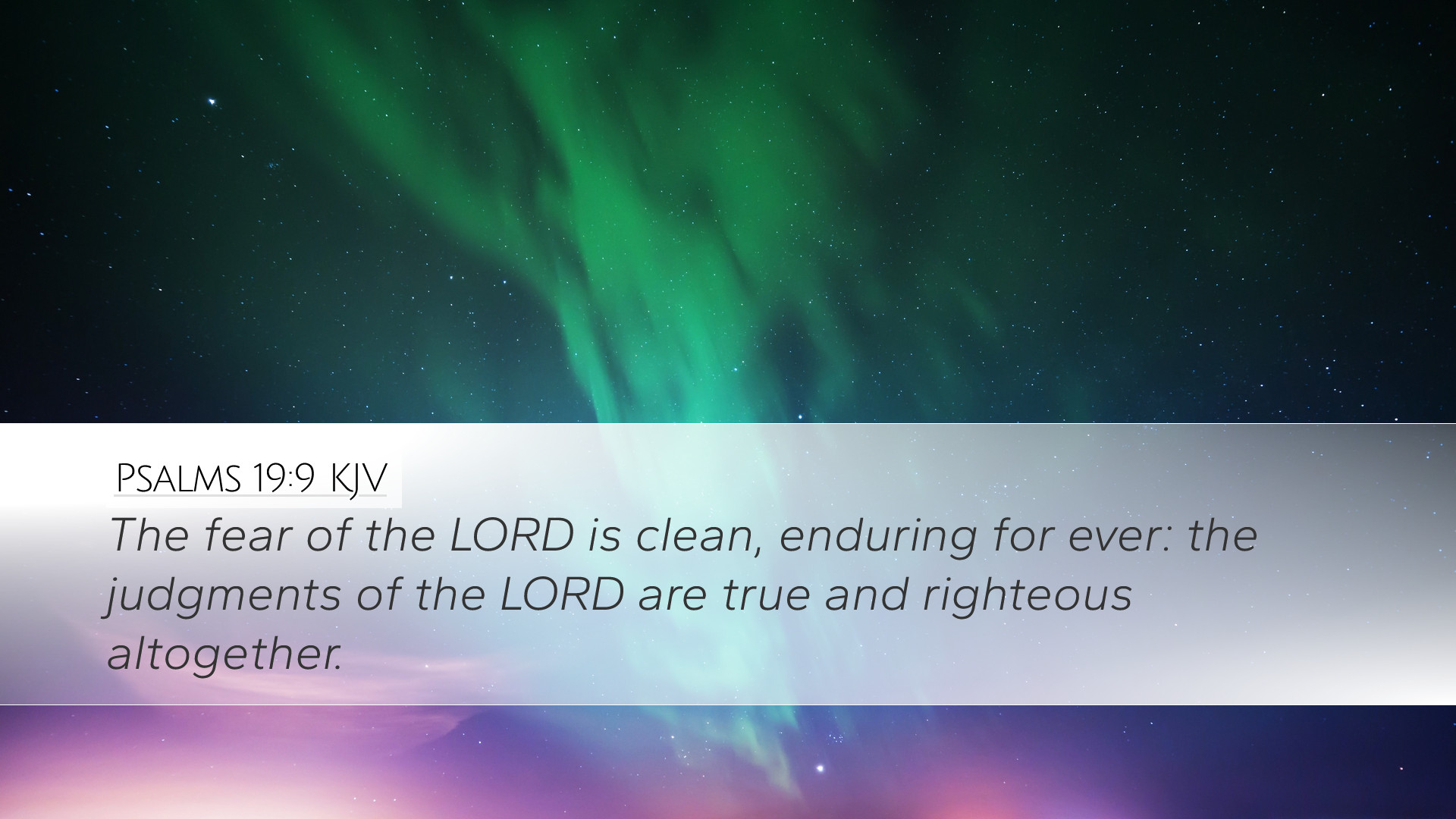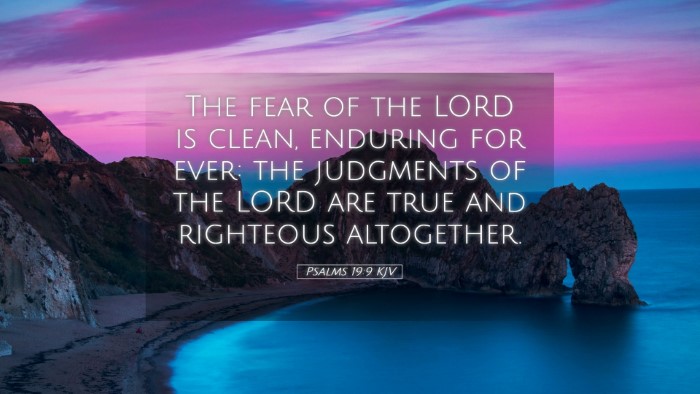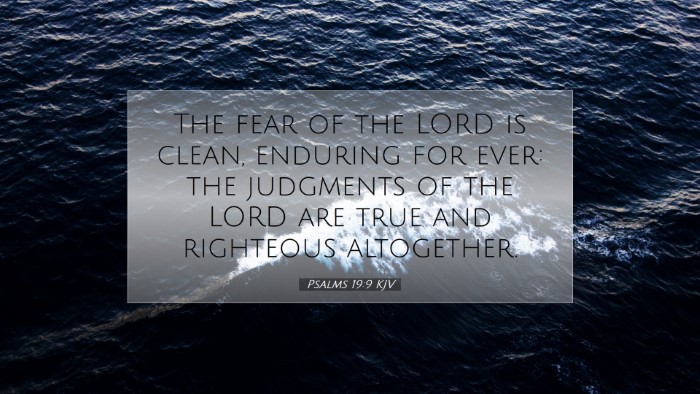Psalms 19:9 - Commentary and Insights
Bible Verse: "The fear of the LORD is clean, enduring for ever: the judgments of the LORD are true and righteous altogether."
Introduction
The verse from Psalms 19:9 presents profound theological insights about the nature of God's commandments and what it means to rightly discern the divine will. This commentary seeks to draw from the rich heritage of public domain commentaries, integrating insights from Matthew Henry, Albert Barnes, and Adam Clarke, providing a comprehensive view for pastors, students, theologians, and Bible scholars.
Exegesis of Psalms 19:9
This verse forms a part of a larger psalm that celebrates God’s revelation in both the natural world and in His Word. The psalmist contrasts the impact of creation with the enduring truths of divine statutes.
The Fear of the LORD
Matthew Henry emphasizes that "the fear of the LORD" is not merely an emotion but a profound reverence for God that leads individuals to live in accordance with His will. This fear is described as "clean" (pure, without corruption), suggesting that it elevates the soul and leads to spiritual purity.
Meaning and Implications
Henry notes that the fear of the LORD is essential for maintaining holiness in the believer's life. It enables one to avoid sin and promotes a continual awareness of God's presence. Adams Clarke elaborates that true fear of the LORD results in a desire to keep God's commandments, aligning our actions with His judgments.
Enduring for Ever
When it is stated that the fear of the LORD is "enduring for ever," both Barnes and Clarke agree that it points to the everlasting nature of God’s moral principles. The fear of God is not transient; it persists throughout eternity. Henry remarks that unlike human emotions or convictions, the reverence for God remains constant, providing stability in an ever-changing world.
The Timeless Nature of Divine Judgments
Clarke comments on the eternal character of God's judgments, stating that they are "true and righteous altogether." This affirmation asserts God's justice as foundational to His character. Barnes reinforces this view, emphasizing that the judgments of the LORD encompass both the rules He sets forth for humanity and the consequences that follow disobedience.
The Righteousness of God’s Judgments
Exploring the second part of the verse, the psalmist extols God's judgments as "true and righteous altogether." This reflects a fundamental attribute of God: His justice. Theologians have long taught that God's judgments are not arbitrary, but are consistent with His holy nature.
The Nature of God’s Judgments
Henry posits that God's judgments are a guide for moral behavior; they reveal the path of righteousness. Barnes adds that these judgments are just not only because they stem from divine wisdom but also because they encompass the moral law inherent in creation itself. Adam Clarke highlights that God's judgments serve a dual function: they not only condemn sin but also instruct mankind in the way of righteousness.
The Practical Application for Believers
For today's believer, understanding the righteousness of God’s judgments serves to anchor their faith and guide daily living. This awe-inspired fear cultivates a heart that seeks to obey God's Word sincerely.
Conclusion
The wisdom contained in Psalms 19:9 is profound and lasting. The fear of the LORD leads to purity and endurance, while the acknowledgment of His judgments fosters a commitment to righteousness. As pastors, students, and scholars reflect on this text, they are encouraged to cultivate both a reverent fear of God and a sincere desire to align their lives with His unchanging truths.
Reflection Questions
- How does the fear of the LORD manifest in your personal faith journey?
- In what ways can a deeper understanding of God’s judgments impact your ministry or theological studies?
- How can churches foster a culture that reflects the reverence for God's Word as described in Psalms 19:9?


